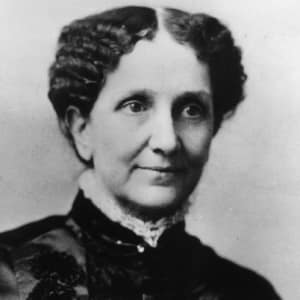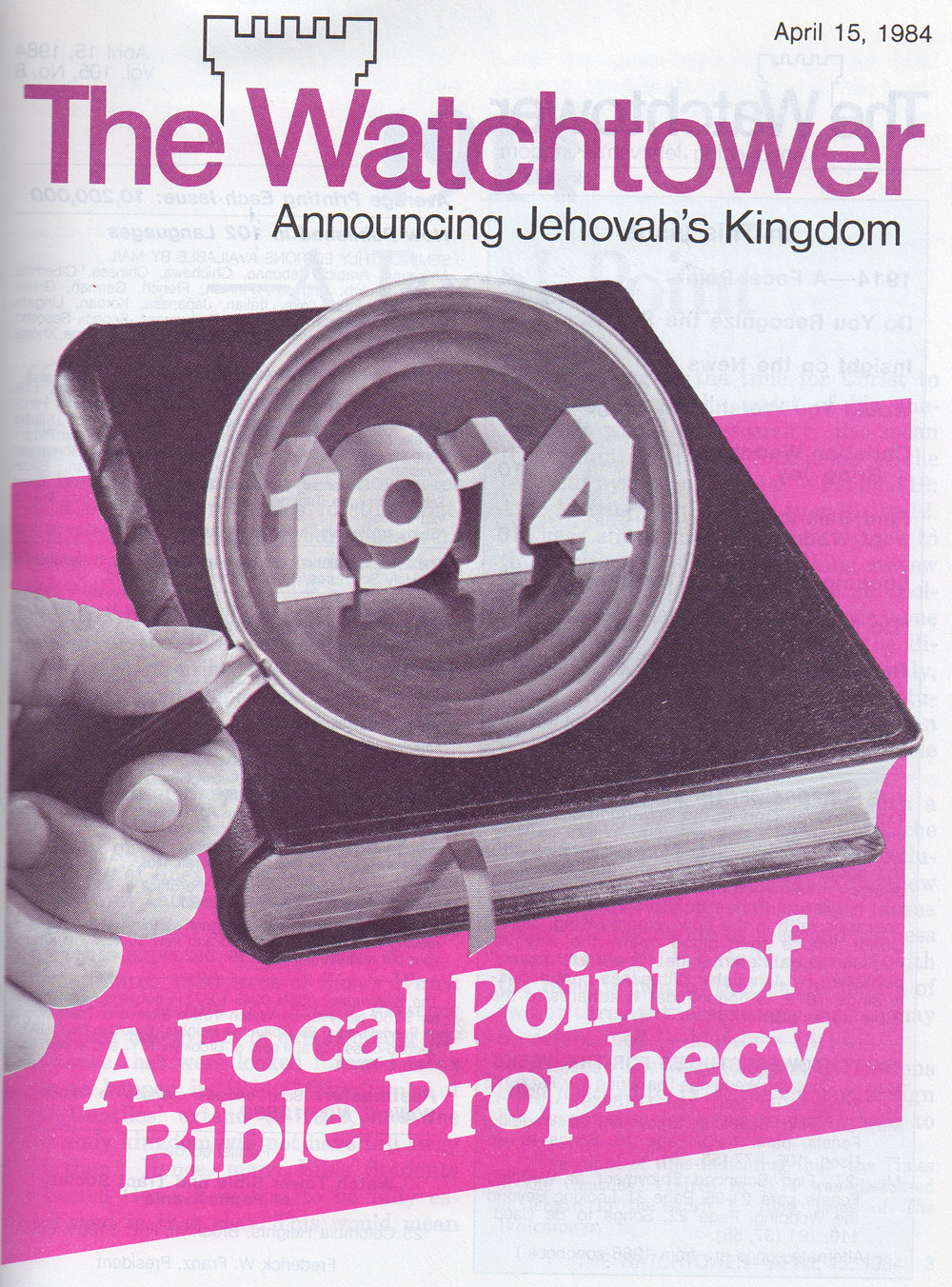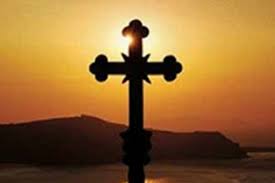No, this week’s introductory image is not missing. (I think those who receive the Blog by e-mail don’t see it? I’ll add it again here to the left, just in case.) I chose it to symbolize Christian Science. Read on.
to the left, just in case.) I chose it to symbolize Christian Science. Read on.
But first, speaking of introductory images: If anyone saw the image at the beginning of last week’s Blog Post and wondered if I am now selling underwear online, I would like to apologize. This happened because I was hurrying off on vacation and forgot to “set” the image, so the gremlins inside my computer or wherever they live did it for me, and chose… well, Mormon priestly undergarments. In a comment at the end, “MamaV” shared some knowledge about Mormonism and then suggested that perhaps it would be better not to stress the, uh,”sensational” aspects of that religion. Indeed. I was about to go back and change the image to something more presentable, but then figured it’s too late now. And besides that would eliminate the need for Kevin’s subsequent clever comment: “So in a way, your post got caught with its pants down.” (!!) Again, I apologize.
Someone asked whether the Faiths we’ve looked at in this segment are Christian. Unitarians – no, by their own definition. As for Mormons, Jehovah’s Witnesses and Christian Scientists, it depends on how we define the term. If “Christian” means followers of Jesus in some way, the answer is yes. If “Christian” means those who adhere to the ecumenical Creed and believe Jesus is the only-begotten incarnate Son of God, the answer is no. But by that last definition how do we categorize those liberal Protestants who do not believe the Creed? Let’s leave it there.
Now, moving on…
Christian Science
Don’t confuse this with Scientology, which is a very different thing.
Christian Science was founded by  Mary Baker Eddy in Boston in the late 1800s. She looks very much the Victorian lady, doesn’t she? rather like my kindly intelligent eccentric very firm-minded Great Aunt whom I knew in her old age, who was a Christian Scientist. I think Christian Science has appealed to a “certain sort of person”, which I remember from my youth but can’t quite define.
Mary Baker Eddy in Boston in the late 1800s. She looks very much the Victorian lady, doesn’t she? rather like my kindly intelligent eccentric very firm-minded Great Aunt whom I knew in her old age, who was a Christian Scientist. I think Christian Science has appealed to a “certain sort of person”, which I remember from my youth but can’t quite define.
Mrs. Eddy (see – she was the sort of person I can’t just call “Eddy”) wrote a book Science and Health, which is yet another equivalent of the Holy Scriptures. It says that only goodness, truth, spirit, life and health are real. Evil, sin, falsehood, sickness, pain, death and matter are illusions. Once you truly know these things have no reality *, they have no power over you, so the key is to set your mind straight. This is clearly a version of the ancient Gnostic heresy. Christian Scientists consider Jesus divine, but they kind of consider everybody divine. They do not believe in the Incarnation because they do not believe in bodies.
- I have long found this line from C.S. Lewis to be very helpful in my thinking: “The question is not whether something is real. The question is: a real what?”
There is certainly some truth in Christian Science. Orthodoxy believes in spiritual healing. That’s why we have the sacrament of Holy Unction. And it is definitely true that once we believe Christ conquered death for us, death loses much of its power over us.
However, pain and death exist. Even if pain has “no reality”, it still feels like it hurts. My old British Methodist professor told the story of the boy who, after visiting a friend, came home and told his Christian Science mother, “Johnny’s mother is sick”. “No, dear”, his mother told him, “she only thinks she’s sick.” Next day, the boy came home again and announced, “Now Johnny’s mother thinks she’s dead.” He told this story not to make fun of the Scientists, but to point out an obvious flaw in their approach.
Devout Christian Scientists do not go to doctors since sickness has no reality, but rather they call in Christian Science readers to help people set their minds aright. For this purpose they have Christian Science “Reading Rooms” scattered all over. Mark Twain said that if Christian Science kept growing it would have to be outlawed; imagine without vaccinations how disease would spread. (There is a similar problem today, though not with the Christian Scientists.) Nor do they have funerals in their churches, because death doesn’t exist, though they do allow them in funeral homes. Another mystery.
Many years ago as part of a study on other religions, I took my Episcopalian high schoolers to visit various churches. At the Christian Science church in Cedarburg, the very friendly people told us how once they knew pain, sickness and matter were not real, they felt better. Afterwards they asked if we had questions. I asked, “Do you really believe your body has no existence?” A man responded, “Yes, we do”. So I asked in all honesty, trying to make sense of this, “Do you eat?” The man said, “I guess if we believed fully we wouldn’t.” Then he invited us out for ice cream! It left my head spinning. However, I’m glad to report that the spiritual ice cream tasted just like  the regular kind.
the regular kind.
And they must believe in matter in some sense: When the Christian Scientists in Iowa City decided to sell their immaterial building to our Antiochian congregation, they asked $500,000 material dollars for it.
This is the mother church, the First Church of Christian Science in Boston.
Christian Scientists must use words in a very different way, to mean very different things, than we do – but I cannot make heads or tails of it. If you can, please comment.
Christian Science never releases membership figures, but they seem to be declining now. I wonder if it is because there are ever fewer of the “sort of person” that was attracted to it.
Jehovah’s Witnesses
In the 1870s in Pennsylvania, Charles Russell founded the Jehovah’s Witnesses, which are part of the Adventist movement who expect the imminent return of Christ. (“Maranatha! Come, Lord Jesus!” I wish…) They are also called Millennialists because they expect a 1000 year reign of Christ on earth, based on a literal interpretation of Revelation 20. Russell predicted Christ’s return in 1914, which seemed not unlikely as the horrors of the First World War I were unfolding, and so the Witnesses gained many followers. As perhaps you have noticed, Christ did not return to earth in 1914.  This turned out not to be a problem. It was revealed somehow that Jesus’ Kingdom was established in 1914 invisibly in heaven. And so the Jehovah’s Witnesses continued. Christ was then predicted to return in 1925 (accompanied by the resurrection of the Old Testament patriarchs) and in 1975. Those also turned out not to be a problem – I can’t remember why.
This turned out not to be a problem. It was revealed somehow that Jesus’ Kingdom was established in 1914 invisibly in heaven. And so the Jehovah’s Witnesses continued. Christ was then predicted to return in 1925 (accompanied by the resurrection of the Old Testament patriarchs) and in 1975. Those also turned out not to be a problem – I can’t remember why.
The Jehovah’s Witness magazine is called “The Watchtower”. It was widely distributed in past years. I remember seeing it in many waiting rooms.
The Witnesses believe that Jesus is not divine, that he and the Archangel Michael are the same person, that Jesus died not on a cross (which is pagan) but on a wooden stake. They believe that only Jehovah’s Witnesses will go to heaven and only 144,000 of them, and only the 144,000 receive Holy Communion. How, I wondered for years but never looked it up till now, do they determine the 144,000? If I read it right, it’s because each of them possesses an inner certainty that he or she is of the elect. That’s it. All other Witnesses will remain on earth which will  become a Paradise. But the rest of us will go to hell – and that is why out of the goodness of their hearts the Witnesses go door to door trying to convert us.
become a Paradise. But the rest of us will go to hell – and that is why out of the goodness of their hearts the Witnesses go door to door trying to convert us.
Each Witness is expected to make a certain number of regular house calls. Some are gentle. A couple from our parish made friends with a young Witness who always came in for coffee, and it was clear he didn’t want to talk much about the Witnesses. But others are intrusive. Many years ago 2 Witnesses called on us. I, wearing my Episcopalian clerical collar, told them kindly that I didn’t think I was a likely convert. But then they came again, and I literally had to push 1 man’s foot out of our front door to get them to go away. And then a 3rd time, just as I was leaving late for a meeting. This time I lost it. I said, “If you don’t believe Jesus Christ is your Lord and God and Savior, you’re going to hell” and drove off. I shouldn’t have done that. I think.
Jehovah’s Witnesses do not celebrate birthdays or holidays, do not salute flags or sing national anthems or serve in the military or receive blood transfusions, based on Acts 15:28-29 where the Apostolic Council told converts from paganism to abstain from blood. Where do they get their doctrines? From the Bible as they read it. However, we should note that they have rewritten the New Testament removing references to the divinity of Christ, and who knows what else?
There are about 8 1/2 million Jehovah’s Witnesses worldwide.
Why do people believe these peculiar things?
We can only speculate. 1 Is it because when they find fellowship, community and a sense of belonging, they just don’t ask questions? But in the same way people joined the Communists and the Nazis. 2 Maybe just because this has been their family tradition. 3 Do they,  like many modern people, just not care about truth? about facts? 4 Is it the desire to be different? Saint Paul warned about people who have “itching ears”, won’t listen to sound doctrine, but will go for anything new and kicky. There was a woman in my old Episcopal parish who believed firmly that there were UFOs in caves in the Wyoming mountains, but she just could not believe in Jesus. 5 Is it because of modern individualism which encourages spiritual pride, the notion that whatever I want to believe might be just as true as anything else?
like many modern people, just not care about truth? about facts? 4 Is it the desire to be different? Saint Paul warned about people who have “itching ears”, won’t listen to sound doctrine, but will go for anything new and kicky. There was a woman in my old Episcopal parish who believed firmly that there were UFOs in caves in the Wyoming mountains, but she just could not believe in Jesus. 5 Is it because of modern individualism which encourages spiritual pride, the notion that whatever I want to believe might be just as true as anything else?
If I wrote here that the Church has been wrong for 20 centuries, but now I have discovered the Truth, how would you react? But that’s because you are Orthodox, most of you. You know that Orthodoxy requires spiritual humility. We did not invent the Faith. Orthodoxy has been passed down (“traditioned”) to us from Christ and the Apostles, generation after generation in the Church. We know that our job is not to reinvent the Tradition or rework it, but to humbly receive it and pass it on untarnished for the benefit of the next generations.
Brothers and sisters, have sympathy for people in these other faiths and for Western Christians in general today. It is hard when “truth” keeps changing on you, when what was Gospel truth suddenly becomes false. In the Protestant denominations and their breakaways there are many good people who seek God, who love Jesus as best they can, and do many good works, very many. Remember we will be judged not by which church we belonged to, but by whether we fed, clothed, and visited the least of Christ’s brethren. (Matthew 25) “Many who are first will be last and the last first.”
Nevertheless, I often find myself more sympathetic to non-Christians and non-believers than to those who use the name Christian, yet twist the Gospel and diminish Christ and his Church or make them seem ludicrous. So I don’t find it surprising that our image in the media and in entertainment is so negative – and that the number of unchurched is now increasing rapidly in America.
Why do I not also blame Orthodox Christians for this general decline? Because we’re still too small for anyone to notice us! And because, as I wrote in an earlier Post, we seem to be growing. However, I know there have been many drop-outs from Orthodoxy. My Greek friends speak of a “lost generation” which they blame on worship in a language which young Americanized Orthodox cannot understand – although I think those who have “hung in” seem to be particularly devout. And I do wonder how many converts we lost because of that terribly funny (I mean both words) Baptism scene in “My Big Fat Greek Wedding”!
Finally, after these many weeks of looking at Other Faiths:
How should we live as Orthodox Christians in a non-Orthodox society? I don’t think it’s so hard:
1 Be educated. Ignorance is dangerous. Know who we are. Know who they are.
I would make the Holy Cross bigger and more encompassing in this image, but it’s the best I could find.
2 Be charitable. Seek what is good – and  there’s a lot – in all Faiths and all people. Christ our God is Lord of all, Judge of it all, and the Key to it all, but God’s Holy Spirit is working everywhere.
there’s a lot – in all Faiths and all people. Christ our God is Lord of all, Judge of it all, and the Key to it all, but God’s Holy Spirit is working everywhere.
3 Be wary. There are foolish dangerous teachings and beliefs out there.
4 Think, for heaven sake. Literally. Don’t just swallow what you hear or read or are told. If any religion or system says, “Don’t ask questions, just believe it”, don’t believe it. If you have to check your mind at the door, don’t go in. Use your common sense: How likely is it that Joseph Smith finally got it right in 1820 or Charles Russell in 1879 or (2 Blog posts back) my Methodist New Testament professor in 1960, or Martin Luther in 1519 – while 2000 years of consistent Orthodox Tradition is wrong? Really folks, all theology aside, what are the odds?
 5 Just be Orthodox. Live the Orthodox life. Follow Christ. Worship. Receive the Blessed Eucharist. Pray. Learn. Lean on your brothers and sisters on earth and in heaven. Confess. Feast. Fast, Forgive. Give to Church and charity. Above all, love. Pour your love out on everyone without distinction. And you’ll find Holy Orthodoxy has such quality and balance, such breadth and depth, such knowledge about God and mankind, and leads to so many good things in life and in death and beyond, that neither you nor your children will be much tempted to turn to strange doctrines.
5 Just be Orthodox. Live the Orthodox life. Follow Christ. Worship. Receive the Blessed Eucharist. Pray. Learn. Lean on your brothers and sisters on earth and in heaven. Confess. Feast. Fast, Forgive. Give to Church and charity. Above all, love. Pour your love out on everyone without distinction. And you’ll find Holy Orthodoxy has such quality and balance, such breadth and depth, such knowledge about God and mankind, and leads to so many good things in life and in death and beyond, that neither you nor your children will be much tempted to turn to strange doctrines.
The End!
Thanks to all of you who have followed through all these articles on Other Faiths and finally this long series on Protestantism and its outgrowths. I’ve enjoyed putting it all together, but it has been much more work than I anticipated, and I’m glad to be done. I have learned a lot, and I hope you have too.
Please keep reading as we move on at last to things more Orthodox.
Next Week: The Falling Asleep of the Theotokos
Week after Next: Weeping Icons

Great post, Father! I absolutely love your writing style. I found myself almost spitting out my water at times when I came upon some funny little side comment of yours. Your plain and honest speak is refreshing. I liken it to the aphorism of “it is what it is”. Thank you for your service to the Holy Orthodox Church. Great will be your reward.
You’re much too kind. However, I have tried to pattern my writing style (very inadequately) after C.S. Lewis – even though I now disagree with him about some things. In Episcopalian seminary we had to read many books of theology which were so ponderous I could barely make them out. Meanwhile, some of the professors put down Lewis as a “popularizer.” Good for him! There is a place for theological jargon as there is in any field, but I think if you can’t also express it simply you probably don’t know what you’re talking about. Regarding “funny comments” I try (but often fail) to be careful about them, because some folks are bound to take everything seriously. However (and I hope no one takes offense at this) when I come to a hard saying of Jesus or one that seems overly critical, I often put a little twinkle in his eye and the meaning comes clear. To me, at least.
Good evening! I wondered if you would have a comment on my recent thought to share – in terms of Orthodox not accepting the Pope as Supreme Bishop, I suddenly thought today that Jesus was very humble, always preaching about meekness, lowliness and being child-like to enter the Kingdom. So, why would He have a plan to elevate one of the Apostles to such great heights that also bring with it a lot of pomp? Having thought that, I later remembered He was also aware of all that was to come in the future and then commented, “The gates of hell will not prevail.” This can be a little confusing as to what exactly Jesus meant and what His plan for Peter and or the Church was? Any comment? Thankyou and God bless…..
And good morning to you! The teaching of the Fathers and of the Orthodox Church today is that Christ built his Church not upon Peter himself but upon the Faith of Peter that Jesus is “the Son of the Living God”. And we consider Peter to be chief of the Apostles (a role that ended with the death of the Apostles), not the first Bishop of Rome. However, the proper role even of the Pope is shown in his title “The Servant of the Servants of God”. All who have power or authority easily fall into the temptation of showing “a lot of pomp” as you aptly put it, and I’m afraid clergy are not immune from this. Long ago I saw the Episcopal Bishop of New York arrive at our seminary in a large chauffeur-driven limousine showing much pomp, I thought – although maybe he needed it to get through Manhattan traffic. I’m afraid it’s the same with a few Orthodox hierarchs: https://www.bbc.com/news/world-europe-17622820 However, in all churches, I’m sure the vast majority of clergy are humble and see themselves as servants of God and of God’s people. Most of us didn’t go into this to get rich – and it worked! I wrote more about the Orthodox understanding of the place of the Bishop of Rome back in Blog Posts 54, 55, and 56, if you want to check them out.
Pax et Bonum! I like your comment about the Church being founded on Peter’s “faith” (which was solid as a rock)! I do believe that Jesus was simply saying, “this is the beginning or now it begins with you Peter – a man of solid faith. ”
I will check the other comments you made and mentioned. Thankyou! God bless, margaret+
I think the key to Peter and the Church to be build upon this Petros (fem for Rock and change of name) was after the crucifixion, when Jesus asked Peter 3x “do you love me” to which he replied, you know all things and know that I love you, and Jesus responded with “feed my sheep”. Peter previously denied him 3x before the crucifixion. Meaning to say, that Revelation has significance in regards to God’s redemption only in conjunction and when it is coined and created/done in LOVE. The greatest of the gifts IS LOVE. Given knowledge in Love that does not puff up, etc. it is the fulfillment of all the LAW. Having Faith without LOVE, or works without faith, all falls in the same pattern. It is a handshake between God and Man, I say what I mean, and I mean what I say, Standing on his WORD of TRUTH, the glue being LOVE his Handshake. (my way of looking at it or interpretation where I can understand it)
Thank you, Love your writing style too, delightful reading and not so condemning and Sin-obsessed.
Thank you. When I was first ordained long ago I thought it was my duty to condemn everybody. Then I learned that most people were trying hard and needed to be encouraged positively. Working backwards, I realized that was Christ’s approach. He condemned only those who were condemning others – the proud pharisees and sadducees, for example – but he was kind and encouraging to sinners. Why did they never point this out to us in seminary? Or maybe they did and I wasn’t paying attention?
By the way, my father comes from Silesia, now Polen, and belonged to the Moravian Church ( 1457) or Bruedergemeinschaft .and raised there in a Christian Coimmunity with protestant nuns. An early branch-off Protestantism who fled constantly the persecutions from the Catholics as well as the Lutheran Church. Like the Anabaptist, Hutterites etc. who frequently joint and melted into the Moravian Church or their Properties to escape violent prosecution. The Lutherans and the Catholics are not so innocent of Humanitarian crimes committed by today’s standards. But things were as they were …they feared for their life’s either by war or religious intolerance every day. Brutal and a very painful History is the story of all of CHRISTIANITY. How can it be reconciled to what Jesus ultimately founded his Church on ….NOT ON A ROCK OF FAITH….BUT ON LOVE and FAITH = being the HOPE, for JEW’s and all others to have and live a future free from self-destruction (sin).
I don’t know who wrote this: “The head of the Church is Christ. The Church is built upon a firm foundation, upon the rock which is Christ. Without Christ there is no Church. The Church and Christ are bound together by love. Where there is no love, there is no Church, there is also no Christ.”
Your statement is by definition correct. Kind of like saying, a woman/wife, a man/husband and child makes a family……, yes it is by definition of words correct, but does it really make a family? Of what kind is it in quality,? Abusive, tyranny, kind, compassionate, tolerant for differences? Every family has it’s secrets and mysteries, shame and dysfunction. Wish they were perfect.
We know that a Church can run on Tradition for a very long time, centuries, without the spirit or the living manifestation of Love and Christ in it. Perhaps it abounds in the brotherhood of all the priests (they cover each others back) as it is in the Catholic Church and also the Protestant. I’ve known a few Clergy’s who do not believe a thing they preach, but impose a believe on others they do not believe themselves. Judaism runs on tradition too, for a very long historic time. A marriage can exist without Love , so can a Church without Christ and Love/Agape. I only know a few things Jesus said to do in remembrance/tradition of him. I guess what it boils down to, is “who and what is real”, if anything,,How will we know….by their fruits, by the books they write, what they intellectually have agreed upon to be true, what the Rulers or priests determined hierarchically and governed down to the uneducated theologically, since the time books and canons were compiled from many sources, and some did not make it. ???????
To much to choose from.
My father died loving his God, Church and Jesus Christ, he would never lie to me and carries more weight for me than any Priest, Church or what I’ve encountered here (US) so far. And I still love him too. I think I stick with my ancestral Church, free to live, love/agape and hope for and bound by his mercy and grace.